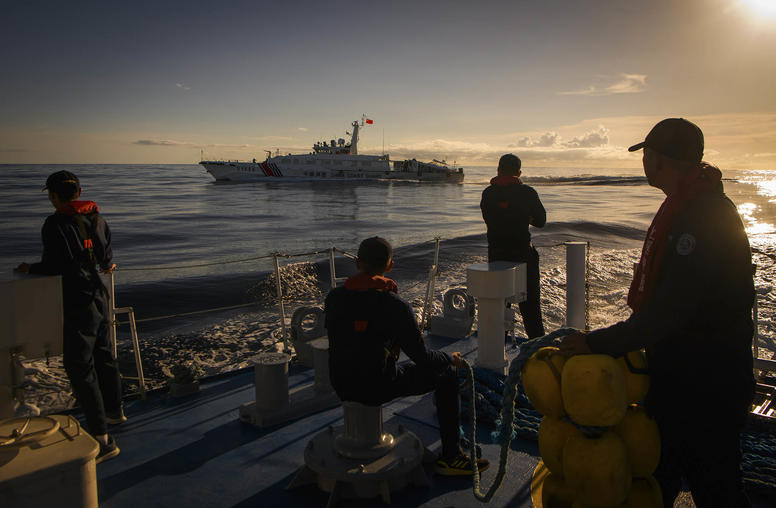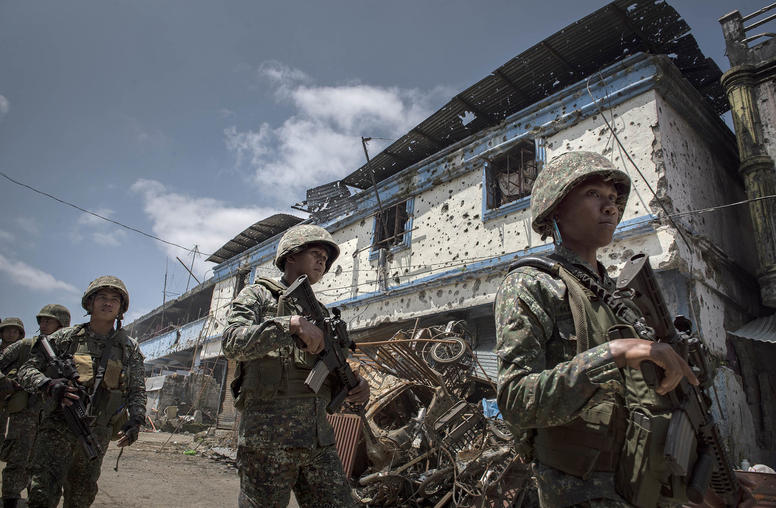Publications
Articles, publications, books, tools and multimedia features from the U.S. Institute of Peace provide the latest news, analysis, research findings, practitioner guides and reports, all related to the conflict zones and issues that are at the center of the Institute’s work to prevent and reduce violent conflict.

Linking Early Warning and Early Response Networks to Curb Violence in West Africa
A conflict early warning and early response (EWER) ecosystem has been developing in West Africa as multilateral organizations, governments, civil society groups, and others have established systems that detect threats and provide critical information to relevant authorities. Yet individual EWER systems are prone to a range of failures—from gaps in data to decision-making bottlenecks to response coordination breakdowns. This report argues that linking individual systems—a network-of-networks approach—can improve outcomes for people across West Africa and serve as a model for other conflict-affected regions around the world.

Why Peace Games? Insights from East Asia
These days, Washington seems to be awash in war games, especially China-related ones. Yet, despite the dangers posed by a great power conflict, there are shockingly few peace games happening inside the Beltway outside the auspices of our home institution, the U.S. Institute of Peace.

Iran’s Attack and the New Escalatory Cycle in the Middle East
The Middle East is entering a new phase after unprecedented attacks by Israel and Iran during the first two weeks of April. Robin Wright, a senior fellow at USIP and the Woodrow Wilson Center who has covered the region for a half century, explores what happened, the strategic implications, the political context and the divided world reaction.

U.S., Japan, Philippines Strengthen Strategic Bonds to Counter China
Next week’s U.S.-Philippines-Japan summit comes against the backdrop of heightened tensions between Manilla and Beijing in the South China Sea, known as the West Philippines Sea in the Philippines. Last month alone saw two incidents of China’s so- called “gray zone” activities, with Chinese ships colliding with Philippines Coast Guard vessels on March 5 and blasting a Philippines supply boat with a water cannon on March 23. These disputes in the West Philippines Sea — an issue on which U.S., Japanese and Philippine interests closely align — will feature prominently when President Joe Biden, Philippine President Ferdinando Marcos Jr. and Japanese Prime Minster Fumio Kishida meet in Washington on April 11.

The Cascading Risks of a Resurgent Islamic State in the Philippines
On December 3, militants placed a bomb amongst parishioners gathered for Catholic Mass on the floor of the Mindanao State University (MSU) gym in Marawi City. Minutes later, it detonated killing four and injuring dozens. The Islamic State (ISIS) claimed that its East Asia affiliate was responsible for the attack. After a year of heavy losses, many had hoped that the threat posed by pro-ISIS groups was dissipating. Unfortunately, the violence that has characterized the six weeks since the bombing suggests that the Islamic State East Asia (ISEA) is attempting a resurgence timed for a critical 16-month period for the Philippines. The stakes are very high.